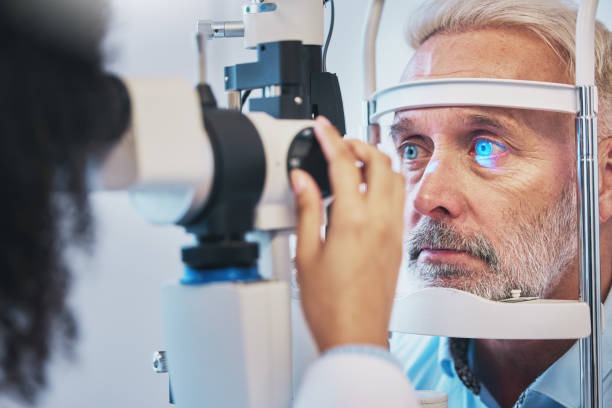Are you giving enough attention to your eyes? They might just be windows to the soul, but they’re also crucial for everyday life. A lot of us overlook regular checkups, thinking everything’s fine until it’s not. Let’s look into why comprehensive eye exams are important and how they can make a difference in your life.
Why Eye Exams Are More Than Just a Vision Check
Many people think of eye exams as a simple vision test: you know, reading letters on an eye chart to see if you need glasses. But there’s much more happening when you sit in that chair and look through those odd-looking machines. A detailed examination can detect underlying health issues, such as diabetes, high blood pressure, and even signs of neurological disorders. Eye doctors don’t just work with vision—they work with health.
What’s Involved in a Comprehensive Eye Exam
So, what actually happens during one of these exams? The specifics might vary, but here’s a general rundown of what you can expect:
-
Visual Acuity Test: Measures how clearly you see.
-
Refraction Assessment: Determines your exact prescription.
-
Eye Muscle Test: Checks coordination and eye muscle strength.
-
Field of Vision Test: Ensures your peripheral vision is intact.
-
Slit-lamp Examination: Examines the front parts of your eye under magnification.
-
Retinal Examination: Provides a detailed view of the back of your eye.
How Often Should You Have an Eye Exam
Wondering how frequently you should visit your eye doctor? In general:
-
Children should have an exam before starting school and every couple of years after unless otherwise advised.
-
Adults should have a complete eye exam every two years. If you’re over 60, annual checkups are recommended.
-
If you wear glasses or contacts or have a health condition that affects eye health, more frequent visits may be needed.
Finding the Right Eye Doctor
When searching for an experienced eye doctor, choose someone with a good reputation who answers your questions in detail. A knowledgeable and caring professional is crucial to understanding your current eye health and helping you take the right preventative measures.
Signs You Need an Eye Exam ASAP
Sometimes, you might actually feel like things aren’t quite right. Here are some warning signs telling you it’s time for an eye exam:
-
Frequent headaches or eye strain
-
Difficulty seeing at night or with light glaring
-
Trouble focusing or blurred vision
-
Double vision or spots in your visual field
-
Pain or discomfort around the eyes
The Role of Technology in Modern Eye Exams
Gone are the days when an eye test involved looking at something out of a sci-fi movie and squinting at letters. Tech advancements have brought in incredible new tools like digital imaging and laser scanning that make exams more thorough and accurate than ever. So, don’t be surprised if you find yourself impressed during your next visit.
Health Beyond Vision
Eye health is a window to your overall well-being. During a comprehensive eye exam in Bloomington, specialists may identify signs of potentially serious health issues early. Diseases affecting other parts of your body often have symptoms that manifest within your eyes. Keeping tabs on your eye health plays a big part in managing your overall future well-being.
How Lifestyle Affects Your Eyes
Do you love your digital devices? Join the club. But remember, staring at screens for long periods can lead to eye strain, dry eyes, and discomfort. Here are some tips to protect those precious peepers:
-
Stick to the 20-20-20 rule: Every 20 minutes, look at something 20 feet away for 20 seconds.
-
Make sure your screens are at the right brightness and contrast.
-
Invest in blue light filtering lenses if you use screens a lot.
The Emotional Impact of Clear Vision
Having a good vision isn’t just about seeing well. It enhances quality of life, boosting confidence and independence. Whether it’s driving, reading, or seeing the smiles of your loved ones, clear vision impacts how you interact with the world.
Your First Eye Exam?
Is it your first time going for an eye exam? Well, you might feel a little nervous, but it’s quite straightforward. Relax, follow the cues of the professional, and you’ll be informed about your eye health in no time. Remember, the goal is to ensure you’re not missing out on the world because of undiagnosed issues.
Common Myths About Eye Health
Let’s bust some myths. Have you ever heard these?
-
Myth: Reading in dim light ruins your eyes.
-
Truth: It might cause strain but won’t do any permanent damage.
-
Myth: Sitting too close to the TV will hurt your eyes.
-
Truth: It doesn’t harm, but it’s a sign you might need glasses.
-
Myth: Eating carrots improves vision.
-
Truth: Vitamins help, but don’t expect superhero sight.
Final Thoughts
So there you have it, a deep dive into why taking care of your eyes is more important than it might seem at first glance. Regular exams are not just for people with eyeglasses or contacts. They’re for everyone. Your sight is too precious to be left unchecked, and sometimes, a routine check can bring peace of mind that everything is as it should be.
Stay proactive and ensure your windows to the world stay clear and healthy. Your eyes have a lot of stories to tell, so let’s make sure they keep doing a stellar job.



